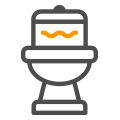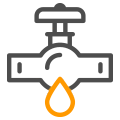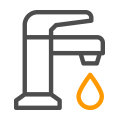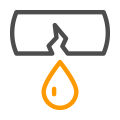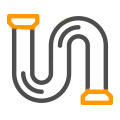Are you looking for a plumber in Cabramatta, NSW? Or encountered an emergency plumbing issue? Get in touch with Dial Up Plumbing Services for a seamless plumbing service experience.
When do you need a plumber?
Plumbers are experts when it comes to unblocking drains, fixing pipes, detecting plumbing leaks, unclogging sink, hot water installation, and many more. A licensed gas plumber can even help you with gas installation.
We are a licensed plumbing service provider helping you with blocked drain repairs, pipe relining, leaking tap fixes, pipe installations, and all kinds of other plumbing installations and repairs.
Not sure if a plumber can help you? We would be more than happy to help you if you give us a call at (02) 8999 6125.
A plumbing service trusted by residents in Cabramatta
Dial Up Plumbing services has delivered top-notch plumbing service to the residents of Cabramatta for over last 20 years.
Our plumbing service Cabramatta comes with 10 years of licensed plumbing experience and is different compared to other local plumbing companies. Choosing the right plumbing company is very vital, and can make a difference of quality and cost.
Our Cabramatta plumbers can attend you for a same-day service at your commercial or residential property solving any kind of plumbing issue at an affordable rate.
Our licensed plumbers are trained and experienced when it comes to fixing blocked drains, repairing showers, sealing leaking pipes, and pipe relining as well. Specially, residential homeowners in Cabramatta encounter a lot of problems in the form of plumbing emergencies.
We can attend to emergency plumbing situations
Whether it be a gas leak or leaking pipe, when it a matter of urgency, we come into action. Pronto!
Reaching Dial Up Plumbing is very easy, we are just a Dial away – (02) 8999 6125. Contact us today to get started with your plumbing job.

Local Plumber Cabramatta, Always Near You
Our plumbers have a reputation for being reliable and available at times when you need us. The team of Dial Up Plumbing Services is comprised of plumbing experts coming from different parts of Sydney and can come to you quickly as possible in terms of any plumbing emergency.
No job is too big or small for us. We’ve encountered a wide variety of jobs in the past, from slow draining pipes and gurgling noises to complete blockages, overflowing toilets, and tree roots causing damage to residents’ homes!
Some common plumbing problems we respond to
As plumbing experts, we can provide you with a quote for any problem and recommend permanent solutions to ensure that the same issue never occurs again. Some of the plumbing problems that we often get inquiries for are;
🟨 My toilet is not flushing, toilet water not filling, blocked toilets
🟨 Tree roots blocking the pipes, blocked drains, storm water blocked drain
🟨 Leaking taps, burst taps, shower repairs, and leaking showers
🟨 Hot water system not working, cold water coming from taps and more
Whatever the plumbing problem is, the solution is just a dial away: Contact Dial Up Plumbing today!

We Specialise in Fixing Blocked Drains
When it comes to unblocking drains in Cabramatta, our drain plumbers are the best. We unblock sinks, toilets, sewer, and drainage with perfection.
Learn more about Blocked Drains
Cabramatta here.
Our cutting edge technology which includes using the best drain clearing chemicals, CCTV Inspection technology, water jetting equipment’s ensures that every drain clearing work we do is carried out with perfection.
Are you after permanent no-dig blocked drain solutions? Dial Up Plumbing is also regarded as the best team of licensed drain experts when it comes to providing top-notch pipe relining services in Sydney.
Get in touch with Plumbing Experts in Cabramatta
Dial Up Plumbing is a Cabramatta’s trusted plumber for a reason. Our team is prominent when it comes to responding to plumbing emergencies. Looking for 24 hour emergency plumber in Cabramatta?
Well, with Dial-Up Plumbing Services, you can rest assured on your couch. Our team is equipped with all the plumbing tools and machinery required to fix a plumbing problem at any time of the day. Why look for someone else when an award-winning local team of licensed plumbers is available to you at an affordable price? We have recently provided services in the following locations; Plumber Lansvale, Plumber Prairiewood, and Plumber Birrong.
FAQs
The services provides by Dial Up Plumbing comes with a labour warranty.* We also provide various discounts on plumbing and are known for quality workmanship in your local area. Our name is synonymous to quality service, affordable prices, and best customer services.
We provide all kinds of residential and commercial plumbing solutions in Cabramatta. Our range of plumbing services includes pipe relining, blocked drain repairs, shower repairs, bathroom installations, hot water replacements and many more. In fact, our commercial plumbers in Cabramatta are regarded as the best service providers by the local residents.
Hiring a professional plumber does not cost much when you get in touch with the right plumbing company. In fact, going for cheap plumbing prices and saving your plumbing cost for now is sure to bring more expenses as seen in many cases.
The cost of hiring a plumber varies on a lot of things. In most cases we need to come to your place and inspect the situation in order to provide the right cost structure. However, we can always give you a rough idea on costing if you get in touch with us.
Cabramatta, also abbreviated as Cabra, is a suburb in South Western Sydney, in the state of New South Wales, Australia. Cabramatta is located 30 kilometres (19 mi) south-west of the Sydney central business district, in the local government area of the City of Fairfield.
Cabramatta has been a melting pot for all manner of Asian and European peoples in the latter half of the 20th century. Initially Since the 1980s, Cabramatta has been a centre for the Vietnamese, as well as many residents from other Asian and European origins. Because of its high Vietnamese population, the suburb has earned the nickname ‘Little Saigon’.
In 1795, an early settler named Hatfield called the area ‘Moonshine Run’ because it was so heavily timbered that moonshine could not penetrate. The name Cabramatta first came into use in the area in the early 19th century when the Bull family named a property they had purchased ‘Cabramatta Park’. When a small village formed nearby in 1814, it took its name from that property. A township grew from this village, and a railway was built through Cabramatta in the 1850s. It was used for loading and unloading freight and livestock. The railway station was not open for public transport until 1856; a school was established in 1882, and a post office in 1886. Cabramatta remained a predominantly agricultural township.
It developed a close community relationship with neighbouring Canley Vale, and until 1899, they shared a common municipality. In 1948, Cabramatta’s local government merged with the neighbouring City of Fairfield, and today remains governed by the Fairfield City Council. It evolved into a Sydney suburb in the mid 20th century, partly as the result of a major state housing project in the nearby Liverpool area in the 1960s that in turn swallowed Cabramatta. The presence of a migrant hostel alongside Cabramatta High School was decisive in shaping the community in the post-war period. In the first phase, large numbers of post-war immigrants from Europe passed through the hostel and settled in the surrounding area during the 1950s and 1960s. They satisfied labour demand for surrounding manufacturing and construction activities, and eventually gave birth to a rapidly growing population in the late 1960s and early 1970s. The entrepreneurs were developing local enterprises.
In the 1980s, Cabramatta and the surrounding Fairfield area was characterised by a diversity of Australian-born children having migrant parents. Cabramatta High School was statistically the most diverse and multicultural school in Sydney, and a study showed that only 10% of children had both parents born in Australia. While many other parts of Sydney had their particular ethnic flavour, Cabramatta was something of a melting pot.
During the 1980s, many of these migrant parents and their children – now young adults – were to settle and populate new housing developments in surrounding areas such as Smithfield and Bonnyrigg that were, until that time, market gardens or semi-rural areas owned by the previous generation. In the 1960s and 1970s, the migrant hostel – along with its peer in Villawood – hosted a second wave of migration: this time from south-east Asia as a result of the Vietnam War. During the 1980s, Cabramatta was transformed into a thriving Asian community, displacing many of the previous migrant generation. The students of local Cabramatta High School represented all manner of people with Asian or European descent. The bustling city centre of Cabramatta could have been confused with the streets of Saigon.
By the early 1980s migration to Cabramatta declined, and as a result the migrant hostel and its many hundreds of small empty apartments lay prey to vandalism. Only the language school remained: it continued to teach English as a Second Language into the early 1990s, until the entire hostel site was demolished and redeveloped into residential housing. A walk through the hostel before its demolition would have revealed closed and boarded-up corrugated iron buildings once home to kitchens, washing facilities, administration and so forth. Drug activities began from the early 1990s (to late) as drug addicts and troublemakers were drawn to the area. However, since 2002, the problems have receded after an anti-drug crackdown was enforced by NSW State Parliament.
Freedom Plaza is located within the Cabramatta CBD and forms the pedestrian mall between John Street and Arthur Street. The Pai Lau or gateway forms the main ornamental feature of Freedom Plaza and symbolises harmony and multiculturalism. It was opened in 1991 by Nick Greiner, the Premier of New South Wales at the time, as part of Lunar New Year celebrations.
Dutton Plaza, a three-storey building located centrally within the Cabramatta CBD, was opened in June 2016. The Fairfield City Council funded and owned retail development replaced an existing Council owned at-grade car park and amenities building, with all income from the new development to be invested in community projects. The development comprises 31 retail premises and amenities on the ground floor, four offices on the first floor, and 275 car spaces on the first and second floors. The public open space fronting the main entrance on the eastern side of the plaza was named Gough Whitlam Place, in honour of Gough Whitlam who represented Cabramatta as the Member for Werriwa from 1952 to 1978.
In addition to plazas, the suburb features a number of arcades and lanes that contain retail stores, eateries and cafes. Such passageways include Belvedere Arcade, Dutton Lane, Ingal Way and Viet Hoa Arcade, among others.
Local schools in the area including public, Catholic and private schools include:
Schools previously located in Cabramatta include:
There are five Vietnamese Buddhist temples in the suburb:
The main public park in Cabramatta is Cabravale Park, which mainly fronts Railway Parade, but is also bordered by Park and McBurney Roads and Bartley Street. Cabravale Park contains children’s play equipment, fitness equipment, a basketball court and seating. The park underwent a major upgrade in 2009 as part of Fairfield City Council’s Parks Improvement Program. The park also serves as a war memorial. A heritage-listed bandstand, built in 1922 to honour the soldiers who lost their lives fighting in the First World War, is located near the centre of the park. The Vietnam War Comradeship Memorial, a monument containing a fountain and pond centred upon a bronze statue of two soldiers, is located near the main entrance of the park on Railway Pde. The monument was built to commemorate the comradeship between Australian and Vietnamese soldiers during the Vietnam War.
Other parks located in Cabramatta include Heather King Park (located on Vale St), Hughes Street Park, Longfield Street Park, Bolivia Street Park, Antonietta Street Park, Bowden Street Reserve and Panorama Street Reserve.
Cabramatta railway station is a junction station on the Sydney Trains network, where the Inner West & Leppington, Cumberland and Bankstown lines merge. A taxi station can also be found on Arthur Street in front of Cabramatta Post Office with frequent services and many taxis.
For details of bus services see Cabramatta station.
According to the 2021 census, there were 21,142 residents in Cabramatta, with 28.6% of people born in Australia. The most common other countries of birth were Vietnam, comprising 37.6%, Cambodia – 8.0%, China (excludes SARs and Taiwan) – 4.0%, Thailand – 2.1%, and Laos – 1.3%. The most common ancestries were Vietnamese 37.8%, Chinese 27.9%, Khmer (Cambodian) 8.8%, Australian 5.2% and English 5.4%.
12.7% of people only spoke English at home. Other languages spoken at home included Vietnamese 43.3%, Cantonese 9.8%, Khmer 7.2%, Mandarin 4.9% and Min Nan 2.1%. The most common responses for religion in Cabramatta (State Suburbs) were Buddhism 42.2%, No Religion 24.0%, Catholic 13.5%, Not stated 8.1% and Christianity (Not Further Definition) 2.2%.
Taking Charge of Cabramatta, a documentary by Markus Lambert and Dai Le, was filmed in 1998. The documentary featured assassinated Cabramatta MP John Newman and former Fairfield Councillor Phuong Ngo, who was convicted of his murder, and was funded by SBS and screened by ABC TV.
Little Fish (2005) was filmed in the Cabramatta area. It starred Cate Blanchett, Sam Neill, Hugo Weaving and Martin Henderson. Prior to Little Fish, a film named The Finished People by Khoa Do, who grew up in a nearby suburb, was filmed/shot in the Cabramatta area.
Once Upon a Time in Cabramatta, a three-part documentary aired on SBS in 2012.
Change of Our Lives (2013) is a film by Maria Tran about the Vietnamese community and hepatitis B, set in Cabramatta. The movie was commissioned by the Cancer Council and Information and Cultural Exchange (ICE).
33°53′40″S 150°56′15″E / 33.89444°S 150.93750°E / -33.89444; 150.93750



